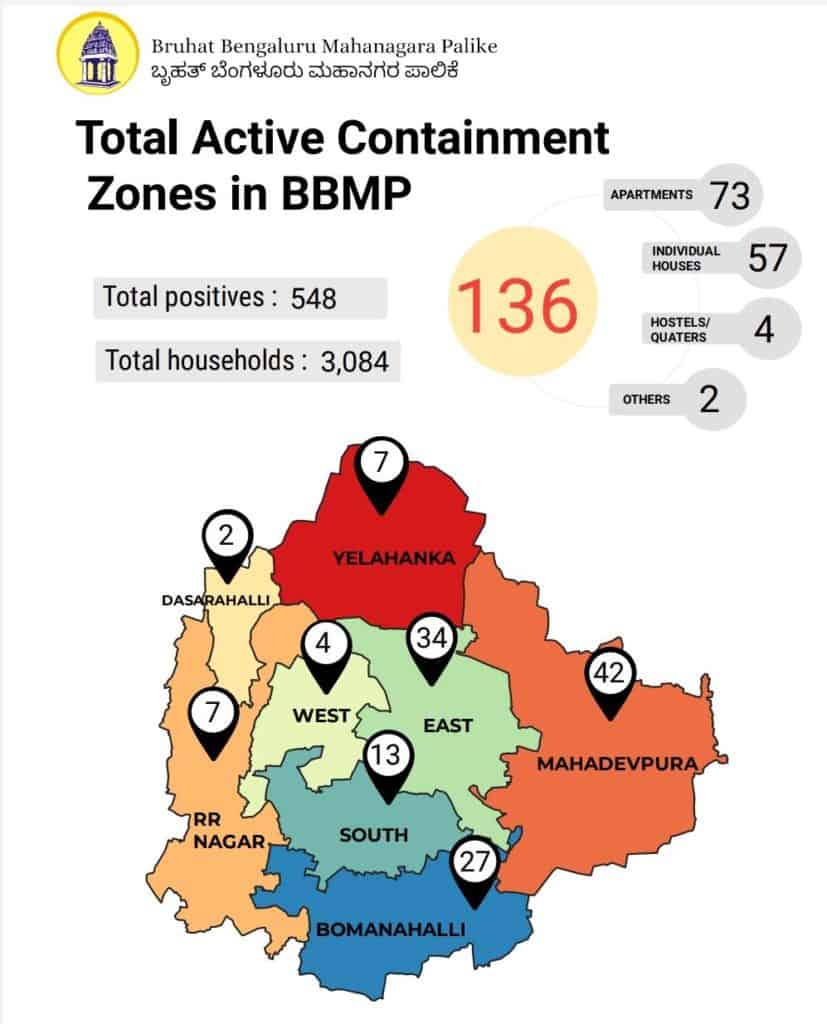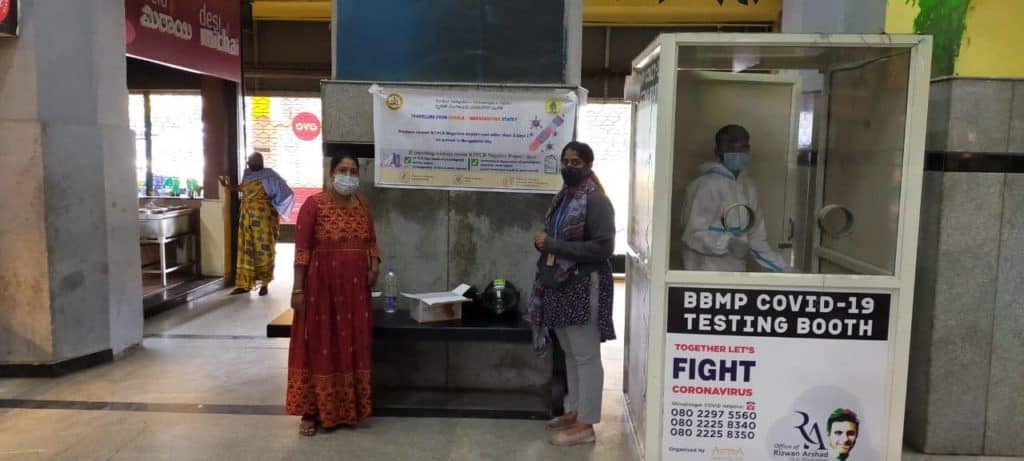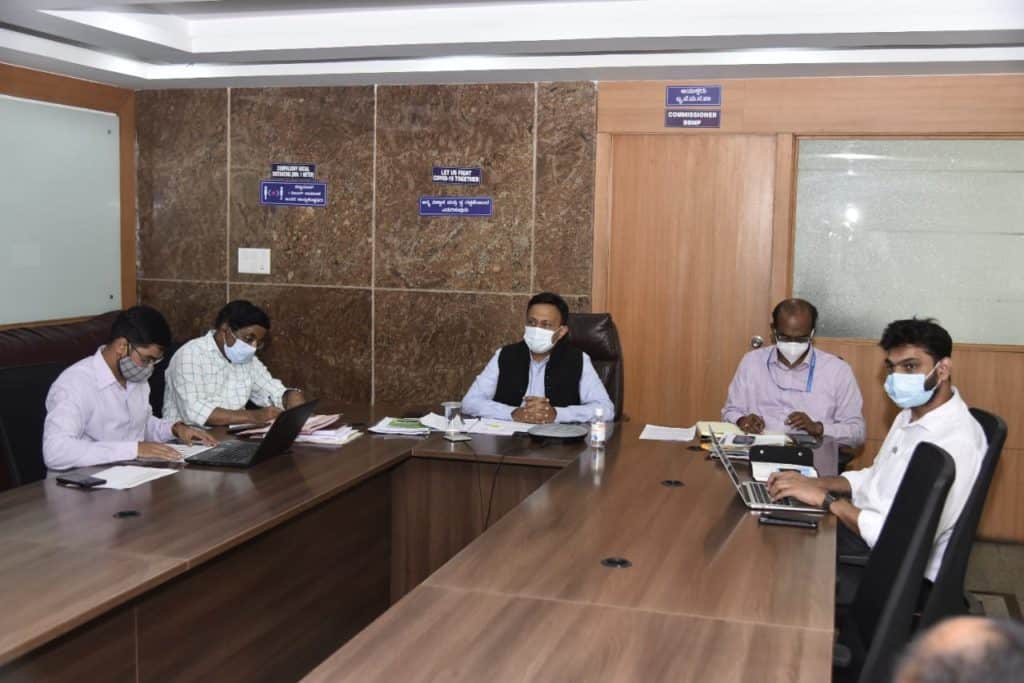COVID infections are on the upswing, with the World Health Organization announcing an 80 percent average increase in infections over the past four weeks in five of the health agency’s six regions, a jump largely fuelled by the Delta variant.
“Delta is a warning that the virus is evolving but it is also a call to action that we need to move now before more dangerous variants emerge,” said Michael Ryan, Executive Director, WHO Health Emergencies Programme, in a briefing.
Statistical models seem to suggest that the third wave in India could be three to four times more severe than the first wave of 2020, but not as severe as the second one of April 2021, which was eight to ten times more severe than the first wave. Researchers have indicated that India might witness the third Covid-19 wave in August with daily cases clocking between 1-1.5 lakhs a day.
Read more: How to cope with mental health fallout from COVID
Karnataka Covid Task Force member and Epidemiologist Dr Giridhar Babu says, “The average interval between waves in high-burden countries varies between 160-180 days. Perpetual readiness and responsive outbreak management are the hallmarks of engaging future waves. Vaccination is the only saviour.”
Giridhar Babu also adds, “It is not the question of “IF” but only *’When’* the third wave is going to be. It is going to take a few months to get a considerable proportion of people to complete two doses. Bengaluru has a lot of migratory population as well. Therefore, early detection of clusters and thorough contact tracing is absolutely necessary to detect and contain the transmission. At the same time, enforcing stricter compliance of Covid19 appropriate behaviour (masking, physical distancing) will remain as the mainstay of prevention along with strict avoidance of super spreader events.”

It is important to be prepared given the unpredictable nature of this pandemic and to genuinely avert a second wave-like catastrophe.
Let’s understand how Bengaluru is bracing up. Harini Raghavan spoke to key officials and health experts.
Randeep D, Special Commissioner Health, Animal Husbandry, IT & Admin, BBMP:
I would not necessarily call it third wave preparedness but we are treading with extreme caution given that Bengaluru is unlocked and have conscientiously been tracking a marginal increase of positive cases in the city.
With the current positivity rate of 0.67% in the city, here are the current measures in place
We have 16 triage centres in the city which would be up to 24 very soon. Vigorous testing and contact tracing is being done.
136 containment zones have been identified and we plan to share exact details of these zones so that the public is aware and can take precautions.
RTPCR testing has been made compulsory for people entering the city from Kerala and Maharashtra.

At least 67 percent of Bengaluru has got its first vaccination and the process for second vaccination is well underway. We have 141 Public Healthcare Centres (PHCs) across the city and we urge people to walk in at the nearest centre and get themselves vaccinated. We also plan to have mobile camps soon. While door-to-door vaccination (may be hard to organise), we hope to provide facilities close to one’s doorstep with these mobile camps.
Bengaluru City police Commissioner Kamal Pant has imposed orders prohibiting the assembly of more than four people in public places, except in places such as airports, train and bus stations or where the number of people is specified. The curfew will be in place till 6 am on August 16.
Colonel Rajbir Singh, Chief Marshall, BBMP:
We are beefing up measures around CAB (Covid Appropriate Behavior) and zonal officers have been given the authority to take action in overcrowded places such as markets, malls etc. BCP fines about 500 people a day and our team of Marshals approximately 950 to 1000 a day.
We follow a two-pronged approach of finding and creating awareness in parallel. In crowded places, we tell people to keep a yard’s distance and follow compulsory masking. For the first time, we have roped in a few women Marshall officers too given that most of these crowded markets have a lot of women and have formally roped in 28 citizen volunteers to be our eyes and ears.
Dr Rajasekhar, Secretary, Private Hospitals and Nursing Homes Association (PHANA):
Private hospitals in our network have been told to focus on staff training and capacity building.They have been asked to create 25 to 30 percent extra beds and stock up liquid oxygen cylinders. Hospitals are also stocking up medicines and have initiated CPR training for pediatric ward personnel.
We should avoid an open competitive market for supplies at any cost and we all know how much damage it caused during the second wave of the pandemic. We are in the process of writing to GoK around the same.

Our portal for bed booking will get re-activated. We have also set up PHANA MITRA where each hospital will have a SPOC / coordinator around bed availability and a roster of such coordinators would exist for ease of coordination between hospitals.
It’s important for people not to second guess the third wave. Usually, a rule of thumb is that from the point when UK shows high levels of positivity, India would be 6 weeks behind and likewise within India, Karnataka would be 2 to 3 weeks behind Maharashtra.
The government must ensure trial results for vaccines for children are made available very soon. PHANA with its vast network of hospitals will be on the job once the government gives clearance.
It’s about time the government provides free supplies of vaccination to private hospitals. This will help people to get vaccinated for free through the private route and of course we would not charge for our time and resources! (Else) a family of five would end up spending a minimum of 3500 to 4000 INR for a shot in private hospitals.
Read more: COVID vaccination for children: Under-18s can wait for now, say experts
Isha Pant, DCP, Bengaluru City Police:
We are continuing to ensure that people adhere to CAB and fine the ones who don’t comply with masking and social distancing rules. Those violating the orders pertaining to CAB will be punished under the Disaster Management Act, IPC Section 188 and Karnataka Epidemic Diseases Act.
While we are addressing this on a war footing, I appeal to each and every citizen of Bengaluru to exercise precaution. We need to fight this together.
Approximately 400,000 people across apartment complexes in Bengaluru stand vaccinated through Bangalore Apartment Federation’s #Vax4All campaign. The campaign was initiated to facilitate Covid-19 vaccination in partnership with leading hospital chains like Manipal Hospitals, Fortis Healthcare, Narayana Health and ApolloHospitals.
Vikram Rai, General Secretary, BAF:
We started off with small vaccination drives during April – May 2021 for the 45 plus demographic, however June and July saw a larger volume with the 18 – 45 years category opening up. Till date 40 percent of the households got vaccinated through this initiative. By August end the people who have only had their first vaccination would have gotten their second round as well.
We also enabled the vaccination of 3500 domestic help workers and support staff through 8 to 9 vaccination camps.
Yamuna Shastry, Founder, Cab Dost:
About 70% of drivers, gig force workers on aggregator platforms in Bengaluru have got their first dose, and 30% of the same populace is already inoculated with the second dose.
In the unorganised sectors, which comprises of 7-10 lakh workers performing essential services, about 4 lakh workers are vaccinated; of this, 2 lakhs work in gig platforms/services, like Swiggy, Uber, Dunzo, Airport taxis, facility management, etc.
One challenge is we are unable to track such workers falling ill with the Delta variant. This, sadly, can’t or isn’t being tracked in real-time and is proving to be a hindrance.
This coupled with the fact that these folks are forever on the move and come in contact with a lot of people will prove to be a big challenge to the government in its fight against Covid-19. Aggregators and GoK should figure out a solution for this.
~~~
The government and community groups are working to mitigate the risks of the third wave. Add all of this to the many organisations which are taking responsibility to get their employees vaccinated.
Needless to say that the threat is not out of the window just yet. However, we can take heart in the fact that the fine “public-private partnership” model in the city of Bengaluru has once again risen to the occasion, drawing lessons from the second wave and working in tandem to minimise extreme risks from the third wave.
[Errata: A quote by Mr. D Randeep was wrongly attributed to Col Rajbir Singh earlier, this has been corrected.]